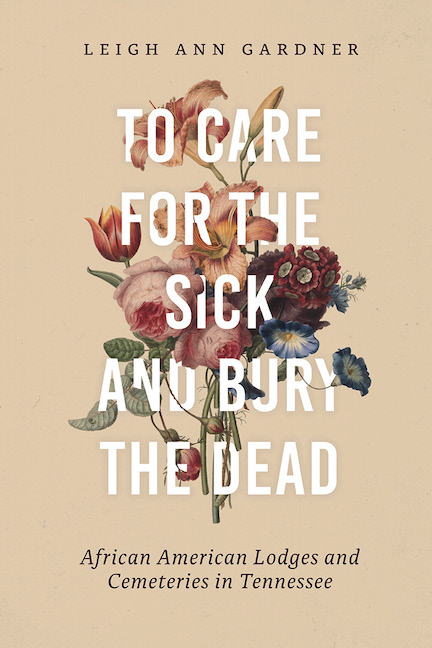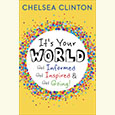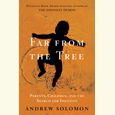This Doll Can Talk
Rheta Grimsley Johnson talks with Chapter 16 about literature, newspapers, and her new memoir, Enchanted Evening Barbie and the Second Coming
Now a syndicated columnist who travels the country for material, Rheta Grimsley Johnson spent much of her career toiling in newspaper bureaus across the South before becoming a big-city journalist. After graduating in 1977 from Auburn University, she lived in Tennessee, Louisiana, and Georgia, among other places, covering hard news, garden clubs and everything in between. She also managed to write three books, including a 1989 authorized biography of Charles Schulz (Good Grief) and a 2008 memoir, Poor Man’s Provence: Finding Myself in Cajun Louisiana. Johnson is now a columnist for King Features Syndicate of New York, and her work appears in about fifty newspapers, including the Knoxville News Sentinel.
In Enchanted Evening Barbie and the Second Coming, Johnson captures what’s so attractive about a life in journalism. One day she’d be in England covering Princess Diana, the next in a small Southern town covering the murder of a homeless gypsy. With both humor and poignancy, she writes about growing up among Southern Baptists, her college years at Auburn University, the sudden death last year of her second husband, and a never-dull journalistic career that took her from a failed weekly startup with her then-husband Jimmy Johnson (who went on to create the Arlo & Janis comic strip) to big metro dailies such as the Memphis Commercial Appeal and the Atlanta Journal-Constitution. She answered questions from Chapter 16 before returning to Memphis on May 4 for an appearance at Davis-Kidd Booksellers.
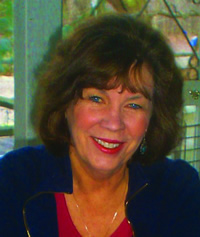 Chapter 16: There’s been a recurring question at Chapter 16 lately about whether Southern literature is dead, and whether the qualities that make the South unique are being trampled by time. Given the people and places you’ve covered and befriended during a lifetime spent living and working in the South, and given your voracious appetite for literature, I have a feeling I know how you might respond to such a question. Will you humor it?
Chapter 16: There’s been a recurring question at Chapter 16 lately about whether Southern literature is dead, and whether the qualities that make the South unique are being trampled by time. Given the people and places you’ve covered and befriended during a lifetime spent living and working in the South, and given your voracious appetite for literature, I have a feeling I know how you might respond to such a question. Will you humor it?
Johnson: I read a similar question about Southern literature and its “dying” distinctions about twenty-five years ago in Harper’s magazine. The novelist William Price Fox disagreed that Southern writing was going the way of the cotton gin and the buggy whip. He said—and I agree—that Northerners want sense, and Southerners want sound. I think you still will find that true if you do a careful survey of novels, especially, but any old kind of writing. The rhythm in the best Southern novels is always there. And while I admire many Northern novelists and columnists—the late, great Fred Exley comes to mind—I don’t see the same musical qualities of, say, a Cynthia Shearer or Nanci Kincaid. Part of the reason, I think, is because the South can lay claim to two types of story-telling music—the blues and hillbilly varieties. Both figure into the fabric of life here and help those of us who want to write stories for a living. And while there are a lot of good essayists, consider the Bailey White approach. You could set her words to music.
Chapter 16: Your remembrances of being a young reporter and living in the “Smurf” house with a cast of like-minded and equally migrant reporters is similar to the experience of so many journalists who toiled in bureaus as they worked their way up in the profession. But, as you note in the book, newspapers are thinner and the culture is poorer, to understate the appalling situation. How do you mourn it?
Johnson: A Birmingham editor I knew was bemoaning the changing times a few years back and said, “Reporters used to gather in the bar after the paper was put to bed; now they rush home to water their ferns.” Technology has made all of us less interesting people. The more wired we are, the less human contact is necessary. That cannot be good, especially for writers. Reporters now think they can find the answer to all of life’s questions on the Internet. Precious little shoe leather is wasted these days. When you take face-to-face encounters out of the equation, you lose part of the story. I’ve always been a bit of an old soul, but I find myself especially out of step these days in newsrooms. So I sit on my front porch and bitch.
Chapter 16: You don’t strike me as the Barbie type. Was she kind of like the horse you always wanted, but then discovered you didn’t?
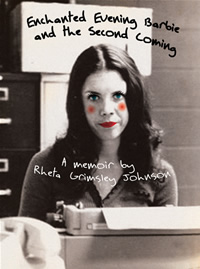 Johnson: No. I loved my Barbie. I can smell that new doll smell coming out of the box right now. She was everything I was not. She had skinny legs and big boobs, good store-bought clothes (though I didn’t get those for my doll), great hair, and perfect makeup. I had women friends in the 1970s and ’80s who would not buy Barbie for their little girls, perhaps justly worried about the anti-feminist statement such a doll made. But I don’t believe my Barbie fascination harmed me in any significant way. She certainly didn’t keep me from becoming a feminist. I don’t even wear high heels with my bathing suits.
Johnson: No. I loved my Barbie. I can smell that new doll smell coming out of the box right now. She was everything I was not. She had skinny legs and big boobs, good store-bought clothes (though I didn’t get those for my doll), great hair, and perfect makeup. I had women friends in the 1970s and ’80s who would not buy Barbie for their little girls, perhaps justly worried about the anti-feminist statement such a doll made. But I don’t believe my Barbie fascination harmed me in any significant way. She certainly didn’t keep me from becoming a feminist. I don’t even wear high heels with my bathing suits.
Chapter 16: It makes me tired to imagine writing four columns a week, as you did for many years at major metros and for syndication. Is it more enjoyable to be responsible for just one a week, as you are now with King Features?
Johnson: Writing one column a week instead of four gives you a little time for living and thinking. Four columns a week was brutal. I would roll out of bed each morning and literally the first question I asked myself was if I had a column due. Now the hardest part is remembering to write the one. There was such pressure, writing four for all those years, that I was never really completely off. It took a toll. I was not easy to live with. After each day’s writing, I’d sit on the deck and relax for about thirty minutes before realizing I needed another idea for the next day. I was climbing a glass hill.
Chapter 16: In Enchanted Evening Barbie and the Second Coming, you give a taste of what wasn’t included in your 1989 authorized biography of Charles Schulz. Is there anything else you can share about this somewhat mysterious man that perhaps you had neither space nor inclination to include in Good Grief?
Johnson: Everything I managed to include in my limited and authorized biography of Charles Schulz was true, so far as it went. He must have agreed. Schulz had veto power over every word and only changed a couple of minor things. Then he allowed a reprinting of the book in paperback version several years later, after having had time to consider at his leisure what I’d written. So considering the constraints—I wrote the book in less than a year while also writing four columns a week—I was proud of the overall effort. I’ve read it said that biographies are simply the buttons on the coat of a man. I agree with that description. But I think my book was accurate, and I did not knowingly leave out any significant part of his personality. A longer biography by David Michaelis has famously caused much controversy and made much of an affair that Schulz had between his two marriages. The Michaelis book made it sound like Schulz was some kind of ladies’ man. I don’t agree with that, or at least saw no evidence of such. I didn’t know about the affair, but I’m not sure the fact of it changes in any significant way what I would have written. The man was a warm and wonderful human being, not to mention a genius.
Chapter 16: At this point in your life, given the choice between writing a column with a Shiloh, Tennessee, dateline or one with a Paris, France, dateline, which would you choose?
Johnson: It would be tough to choose between Shiloh and Paris datelines. I need both in my life. But if I had to choose only one place to be, it would have to be the South, and home. If I were fluent in French, my answer might be different. I hope to keep visiting France, however, until I’m too old to point and gawk.
Chapter 16: If only everyone could live, love and lament with your kind of class. You write with what seems like no regret at all about your two marriages and the sudden death of your second husband. If you could impart one pearl of wisdom about love—how to take care of it, nurture it—what would it be?
Johnson: Live and love like there is no tomorrow. Often there is not.
Chapter 16: Is the hollow near Iuka, Mississippi, where you’ll write for all your days? And can we expect another book from you?
Johnson: I’m not sure where I’ll spend all the rest of my days. Most probably in the South. Most probably in the hollow near Iuka, Mississippi. I think I have at least one more book in me. Not another memoir, by the way.
Rheta Grimsley Johnson will sign books at Davis-Kidd Booksellers in Memphis on May 4 at 6 p.m.

